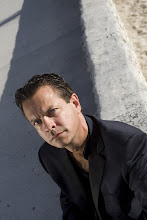Relationship Rescue
by Phillip C. McGraw, PhD.
Introduction:
A book that clearly demonstrates the lack of understanding of the successful relationship is Relationship Rescue by Phillip C. McGraw, Ph.D. What is so sad about this book is that he is so close to the answer yet still unable to understand. Today he is the highest profile psychologist in the industry but that doesn’t mean he comes close to really helping troubled relationships.
Because of his profile, though, he is the most colorful in his words and his writing. Unfortunately for his audience, he is even more emphatic about his beliefs, which turn out to be even more illogical than many of his competitors. This fact is most obvious in his section defining the myths of the relationship. Yes, even the esteemed Dr. Phil falls into this trap with his relationship book. In the book Dr. Phil first assumes that yes every relationship includes arguments.
Details:
For example, he explains that it is “completely naïve and fanciful thinking” to believe serious disagreements can be resolved and that “In the twenty five years that I have been doing work in the field of human behavior, I have seen few if any genuine relationship conflicts ever get resolved.” Yes, it appears he is admitting that he has not solved one conflict in twenty-five years of practice!
So is he saying we just move on without any possibility of reconciling differences in relationships? His “logic” is that “If arguing is done in accordance with some very simple rules of engagement, it can actually help the quality and longevity of the relationship in a number of ways.” He cites numerous times throughout the book this belief. “…Whether you have arguments is not what determines the long-term success or failure of your relationship. It’s how you argue.”
In most of the rest of the book he elaborates on these very simple rules of how to argue as his new revelations. Without a platform of common sense, the logic of arguments is followed by suppression of the negative feelings behind the discontent, without any psychological explanation for the source of these negative feelings.
He also mentions, “Men are going to be men and women are going to be women, and no therapist can change it.” Dr. Phil actually reveals that therapy is not directed towards men by stating in a letter written to men at the back of the book, “I’m assuming that this letter is the first thing you’re reading in this book.”
On the positive side, this book begins his quest to help individuals become happy by explaining the path to overcome the troubles is the responsibility of the reader. Individuals must be happy with themselves before they can make the relationship happy.
In a section where he comes oh so close to discovering the positive relationship is a section entitled “Make yourself happy rather than right”. Ironically, in this section he cites one of the few case studies of a chief master sergeant father and a rebellious son in exhibiting the differences between being right and happy. Again, this is one of the few case studies cited.
The father comments his son should obey him “because I’m the father, by God, and as long as he’s living under my roof, eating my food, and spending my money, I’ve got the right to tell him what to do and how to do it.” Does Dr. Phil follow up with successfully helping the father’s perspective? No. Two and a half weeks after this session the son dies playing basketball. Now of all of the examples he must have seen in his “twenty five” years in practice this is the only example he could come up with? Why wouldn’t he give an example of an unhappy man and wife with whom he was able to convey this message?
Dr. Phil has given up on relationship therapy as he mentioned on Oprah, though, because he realizes there isn’t anything he can do. He does try sometimes now that he has his own show. David Letterman even ribs Dr. Phil nightly on his show: Words of Wisdom From Dr. Phil, “I don’t know what I am doing,” “I’ll beat the crap out of you.” “Call your wife a bitch.” “90% of people are stupid.” Apparently Dr. Phil has now become an entertainer instead of a psychologist, sort of a Jerry Springer with a diploma.













